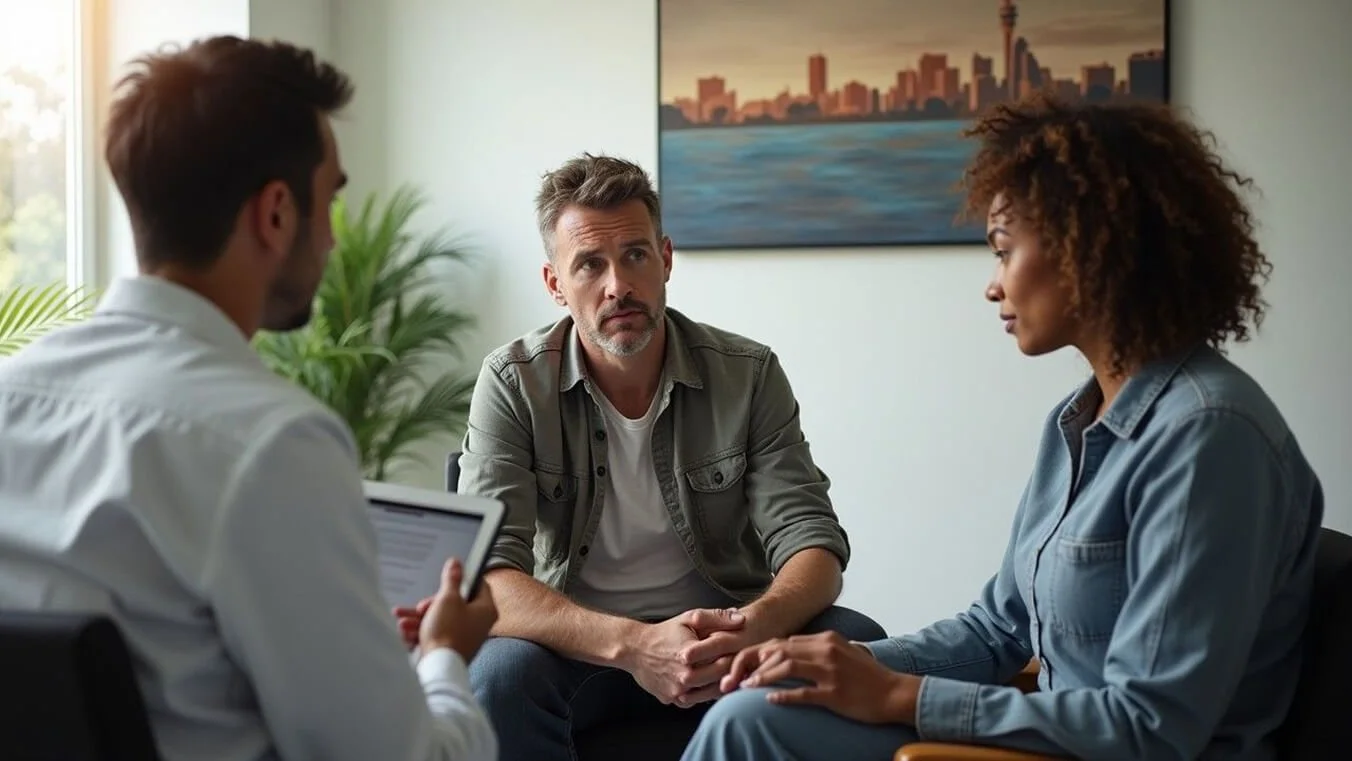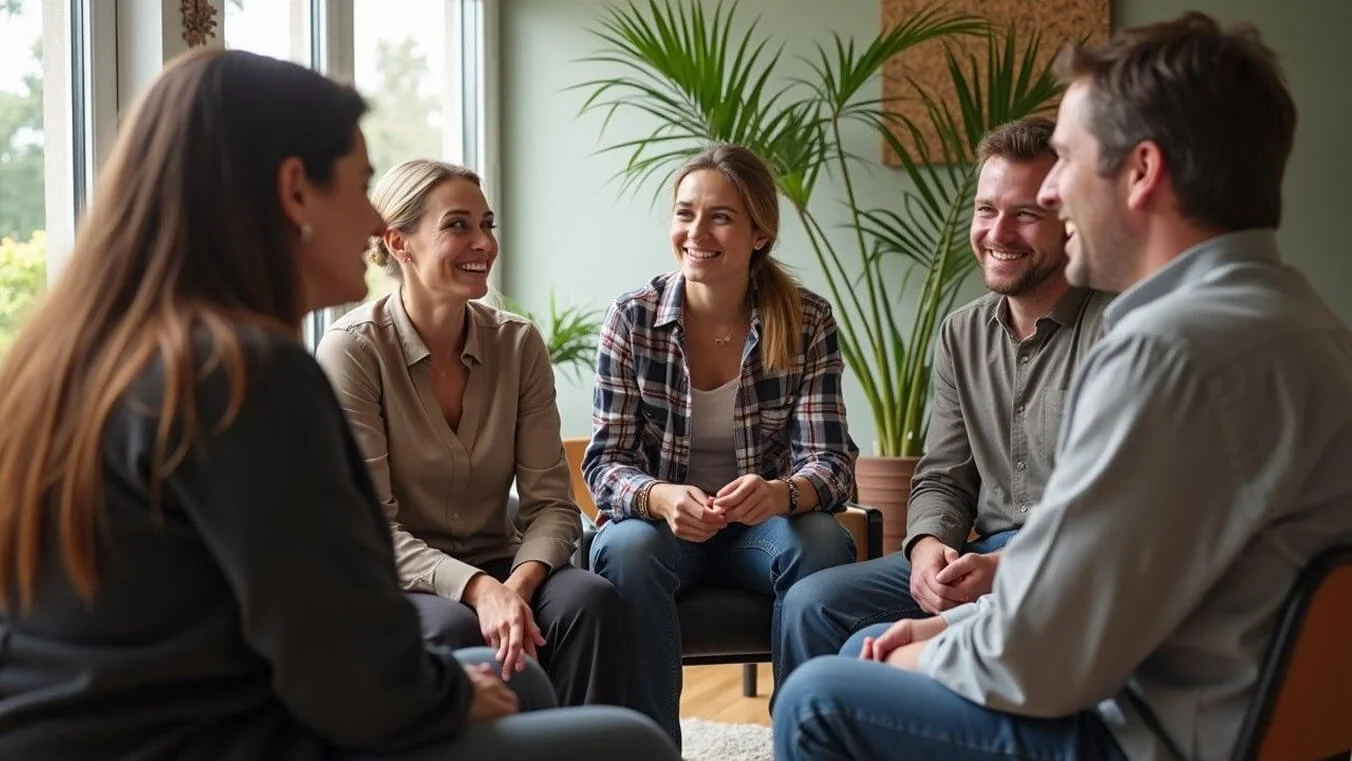Support for Veterans with PTSD: Accessing Treatment, Benefits, and Specialised Care
Facing post-traumatic stress disorder after service can feel overwhelming, but effective support for veterans with PTSD is more accessible than ever before. Many Australian veterans struggle silently with traumatic memories, hypervigilance, and other symptoms that significantly impact daily life. The good news is that with proper treatment and support, recovery is possible. Let's explore the range of services available to help you or a loved one navigate the path to wellness.
Start Your DVA Claim Today
We’ve helped 7,000+ veterans claim $800M+ in Permanent Impairment payouts. With zero upfront fees, you only pay for successful claims.
Understanding PTSD in Australian Veterans
Post Traumatic Stress Disorder (PTSD) can develop after experiencing or witnessing traumatic events during service, affecting how veterans function in civilian life. The condition often manifests through intrusive memories, nightmares, avoidance behaviours, negative thoughts, and increased reactivity to triggers.
According to the Department of Veterans' Affairs, PTSD affects Australian veterans at significantly higher rates than the general population. Recent studies show that approximately 8% of currently serving ADF members experience PTSD, with rates rising to 17.7% among ex-serving personnel. In comparison, the rate in the general Australian population is around 5.7% over a 12-month period.
These statistics from the Department of Veterans' Affairs highlight why specialised support is crucial.
The impact of untreated PTSD extends beyond the individual, affecting relationships, employment, and overall quality of life. Many veterans report difficulties maintaining civilian employment, challenges in family relationships, and an increased risk of developing other health conditions. Our veteran's mental health services article explores these impacts in greater detail.
DVA-Funded Mental Health Support Options
The DVA provides comprehensive support for veterans with mental health conditions, including PTSD.
Non-Liability Healthcare
One of the most important benefits available is non-liability healthcare for mental health conditions. This means that if you've served at least one day in the ADF, you can access fully funded mental health care without needing to prove your condition is service-related. The DVA's mental health support services confirm that this coverage is available to all veterans, regardless of when or where they served.
White Card Coverage
The Veteran White Card provides access to treatment for specific conditions, including all mental health conditions under the non-liability healthcare provisions. With this card, you can receive:
General practitioner visits
Specialist psychiatric consultations
Hospital-based treatment programs
Prescribed medications through the Repatriation Pharmaceutical Benefits Scheme
Gold Card Benefits
Veterans who have reached 60 or more MRCA impairment points may qualify for a Gold Card, which provides comprehensive healthcare coverage beyond just mental health conditions.
Eligibility and Application
Veterans cannot apply for the DVA Gold Card directly. It is granted only when specific eligibility requirements are met under DVA legislation, primarily the Military Rehabilitation and Compensation Act (MRCA). While the process can seem complex, it's essentially about verifying your service and current health needs. Having your service records and medical documentation ready will streamline the process. Working with professional claim specialists like our team at Veterans First Consulting can significantly improve your chances of receiving the full range of benefits you're entitled to.
Specialised PTSD Treatment Programs
The DVA funds several specialised treatment options designed specifically for veterans with PTSD.
Hospital-Based Trauma Recovery Programs
The Department of Veterans' Affairs funds Trauma Recovery Programs (TRP) in accredited contracted hospitals throughout Australia. These programs provide high-quality, evidence-based PTSD treatment for current and former ADF members.
According to Open Arms, these programs must meet DVA's National Accreditation Standards for Trauma Recovery Programs, ensuring you receive the best possible care. These programs typically involve inpatient or outpatient treatment cycles lasting several weeks.
The RESTORE Program
A groundbreaking new treatment option is now available through a partnership between DVA, the Department of Defence and Phoenix Australia. The Rapid Exposure Supporting Trauma Recovery (RESTORE) program offers intensive exposure therapy delivered within a two-week period.
Research from the Department of Veterans' Affairs shows this innovative approach is as effective as standard treatment but with lower dropout rates. This is particularly valuable for veterans who find it challenging to commit to longer treatment programs.
Evidence-Based Therapy Approaches
Several evidence-based therapeutic approaches have proven effective for treating PTSD in veterans:
These approaches help process traumatic memories and develop healthier coping strategies for managing symptoms. Each has a strong evidence base for reducing PTSD symptoms, according to Phoenix Australia.
Medication Options
While psychological therapies are usually the first-line treatment, medication can also play an important role in managing PTSD symptoms. Antidepressants, particularly SSRIs (selective serotonin reuptake inhibitors) and SNRIs (serotonin-norepinephrine reuptake inhibitors), may be prescribed to help manage symptoms like depression, anxiety, and sleep disturbances.
Free and Immediate Support Services
When you're struggling with PTSD, knowing where to turn for immediate support is crucial.
Open Arms - Veterans & Families Counselling
Open Arms provides free, confidential counselling to veterans and their families. Their staff understand military culture and provide specialised support for PTSD and other mental health conditions.
Open Arms offers:
24-hour free confidential counselling
Group treatment programs
Crisis support
Community and peer networks
To access these services, call 1800-011-046 any time of day or night.
Crisis Support Options
If you're experiencing a mental health crisis, immediate help is available:
Lifeline: 13 11 14
Suicide Call Back Service: 1300 659 467
Triple Zero (000) for emergencies
Remember, reaching out during a crisis shows strength, not weakness.
Peer Support Programs
Connecting with other veterans who understand your experiences can be incredibly powerful. Our veteran mentorship program article discusses how structured peer support can help you thrive after service.
These programs provide opportunities to share experiences, learn coping strategies, and build a supportive community with others who truly understand what you're going through.
Digital Resources and Self-Help Tools
Several digital tools can provide support between therapy sessions:
PTSD Coach Australia app: Offers education and self-management strategies
High Res app: Helps build resilience and manage stress
Headspace: Provides guided meditation and mindfulness exercises
While these tools shouldn't replace professional treatment, they can be valuable supplements to your overall care plan.
How to Navigate the PTSD Support System
The system of supports available can seem overwhelming at first. Here's how to navigate it effectively.
Starting the Conversation
The first step is often speaking with your GP. Your doctor can:
Assess your symptoms
Create a mental health treatment plan
Refer you to specialists
Help you apply for DVA benefits
Be honest about what you're experiencing—your doctor is there to help, not judge.
Getting Professional Help with DVA Claims
Navigating the DVA claims system can be challenging, especially when you're already dealing with PTSD symptoms. This is where professional claim specialists like Veterans First Consulting can make a significant difference.
Our experienced team understands the complexities of DVA claims and can help ensure you receive all the benefits you're entitled to. Unlike free services that may result in incomplete claims, we provide thorough, professional assistance throughout the entire process.
Step-by-Step Guide to Accessing Treatment
Start with your GP for an initial assessment and referral
Apply for a White Card through DVA or with professional assistance
Connect with Open Arms for immediate counselling support
Consider specialised trauma recovery programs
Maintain consistent engagement with treatment
Utilise supplementary supports like peer programs and digital tools
Overcoming Common Barriers to Seeking Help
Many veterans hesitate to seek help due to concerns about stigma, career impacts, or believing they should be able to "handle it" themselves. It's important to recognise that seeking treatment is a sign of strength, not weakness.
Treatment works—the evidence clearly shows that with proper support, PTSD symptoms can improve significantly. Taking that first step is often the most challenging part.
Support for Families of Veterans with PTSD
PTSD doesn't just affect the individual veteran—it impacts the entire family system.
Resources for Partners and Children
Family members can access support through several channels:
Open Arms provides counselling for family members
DVA offers a range of family support services
Relationship Australia (1300 364 277) offers specialised counselling
These services help family members understand PTSD and develop strategies for supporting their loved one while maintaining their own wellbeing.
Understanding Secondary Trauma
Living with someone experiencing PTSD can lead to secondary traumatic stress for family members. Signs include:
Taking on the veteran's symptoms
Developing anxiety or depression
Experiencing caregiver burnout
Withdrawing from usual activities
Recognising these signs early helps ensure family members get the support they need.
Building a Supportive Home Environment
Creating a stable, predictable home environment can help minimise PTSD triggers. This might include:
Establishing regular routines
Creating quiet spaces for decompression
Open communication about triggers
Planning ahead for potentially challenging situations
When and How to Seek Help as a Family Member
If you're supporting a veteran with PTSD, don't wait until you're overwhelmed to seek help. Reach out to Open Arms or your GP to discuss your specific situation and develop coping strategies.
Maximising Your Support and Treatment Outcomes
Getting the most from available supports requires a strategic approach.
Combining Different Support Approaches
The most effective PTSD treatment often involves multiple approaches:
Professional therapy to process trauma
Medication to manage symptoms if needed
Peer support for understanding and connection
Self-help strategies for day-to-day coping
Physical activity and proper nutrition to support overall wellbeing
The Importance of Consistent Treatment
Recovery from PTSD is rarely linear. Consistent engagement with treatment, even when symptoms improve, helps maintain progress and prevent relapse. Be patient with yourself—healing takes time.
Managing Setbacks in the Recovery Journey
Setbacks are a normal part of recovery. If symptoms worsen temporarily:
Continue with treatment
Use learned coping strategies
Reach out to your support network
Speak with your healthcare provider about adjusting your treatment plan
Long-term Management Strategies
For many veterans, PTSD becomes manageable but may require ongoing attention. Long-term strategies include:
Regular check-ins with mental health professionals
Maintaining a connection with peer support networks
Practising stress management techniques
Healthy lifestyle choices to support mental wellbeing
Getting the Support You Deserve
Recovery from PTSD is possible, and you don't have to face it alone. With the proper support, many veterans experience significant improvement in their symptoms and quality of life. At Veterans First Consulting, we're committed to helping you navigate the DVA system to access the full range of benefits and support services you've earned through your service. Contact us today to discuss how we can help you on your journey to recovery.
Simplify Your DVA Claim: Get the Compensation You Deserve
Veterans First Consulting has secured $800M+ in DVA claims for 7,000+ veterans. Let us handle your new claim or reassessment. With zero upfront fees, you only pay for successful claims.




